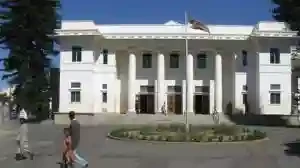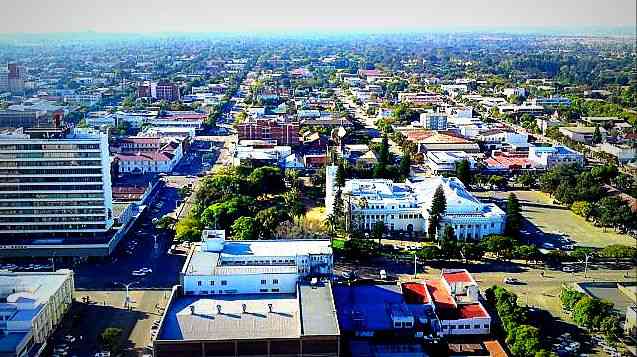CIVIL service is the cornerstone of any democracy. These are the people who dedicate themselves to serve their country to the best of their ability, not because they are loyal to a political party, but because they are loyal to the State.
Zimbabwe has a shortage of these men and women and it’s seen in the elementary mistakes in the Office of the Presidency.
President Emmerson Mnangagwa will go down in history as the man who started and ended his first term with significant oversights. Oversights that prove that no one was putting their thinking caps on when the decisions were made but were only too ready to please the political masters.
Mnangagwa is said to be a lawyer, but the mistakes of his administration show that he has never put the lessons from that studying to great use. His first mistake of reading the law was appointing six non-constituency MPs with the hope to appoint them to his first Cabinet after his 2018 presidential election win. To save face, Christopher Mutsvangwa was withdrawn at the last minute from being sworn in and appointed a presidential advisor with the same perks as a minister.
It shocked all enlightened Zimbabweans that the Office of the President and Cabinet (OPC) could make such a gaffe, considering the technical people who staff the office. The OPC has all varieties of staff: engineers, lawyers, administrators, security experts, scientists and all sorts of experts imaginable.
What surprised many was how such an office could fail to understand such a clear constitutional requirement on the limit of non-constituency MPs. It either shows a staff that does not take its work seriously or was clearly setting up the President for embarrassment.
Keep Reading
- Zim headed for a political dead heat in 2023
- Zec failing to level playing field: CiCZ
- Take Money clinches sponsorship deal
- Zimra targets US$ tax evaders
If the swearing in faux pas was a once-off thing, the OPC can be forgiven. However, last week it made another gaffe when it published a General Notice in the Government Gazette that everyone now disowns. The Chief Secretary to Cabinet and President, Misheck Sibanda published a general notice that said the Health ministry procurement of goods and services were no longer going to be done through a public tender system. This is against the constitutional well-established tenets of transparency and accountability.
The notice caused an uproar on social media. This uproar is based on past experiences, particularly during the COVID-19 pandemic when the ministry was involved in a number of procurement deals that bordered on fraud or abuse of office. The ministry procured drugs worth millions from shady companies. Former Health minister, Obadiah Moyo, was arrested and arraigned before courts for corruption.
The ministry had become a citadel of corrupt procurement. It is the brazen illegal procurement by the ministry that raised the ire of the people. It is logical to draw the conclusion that the OPC wanted to cover its tracks, particularly since the last visit by the First Lady and her sons to Belarus.
Sibanda, the same man who published the notice issued a statement on behalf of the President purporting to retract the notice. The statement read: “His Excellency the President, Dr ED Mnangagwa, has been made aware of some document gazetted as General Notice 635 of 2023, purporting to place the procurement of certain goods outside public scrutiny, on grounds of national interest.
“Upon further investigations, it has come to light that the so-called Government Gazette Notice is a nullity, having been published without authorisation, and without the signature of the Chief Secretary to President and Cabinet, as is the norm.”
Let’s unpack this. Sibanda did not complain about the notice published last Friday. He is still to publicly distance the notice from himself. The President has told him to issue a statement calling the notice a nullity and he duly complied.
Sibanda knows or is supposed to know that what is published in the Government Gazette can only be nullified or rescinded through another publication in the Government Gazette. In essence, it is important for the media to check if there were no deals signed within the seven days the notice was in place.
We now know that the senior civil servants are doing a disservice to the public by being yes-men and women to politicians. They are neglecting their duty to advise the politicians and doing the correct thing.
This gets us to the measures to stabilise the exchange rate and macro-economy statement by Treasury issued on Thursday.
This is a clear case of policy inconsistency in the government. There is no solid position on currency. And the new measures opened local manufacturing companies to competition from the region by removing duty on basic food stuff. Zimbabwe is back into 2008, South Africa’s supermarket.
“In order to enhance the supply of basic goods to the public, all basic goods will no longer be subject to import licences, and will also come into the country free of import duties and taxes,” the Treasury statement read.
The floodgates are open. Everyone will go and buy from Botswana, South Africa, Mozambique, Zambia and Tanzania. Everyone with free funds can choose how to spend their money. Very soon, Zimbabwe will be back into the late 2007 era when it had no import cover. All the forex going out to get trinkets.
Local industries will bleed jobs, because they definitely can’t compete with foreign companies when they have no electricity for 12 hours or more every single day, poor communication and have to borrow at 150% from banks.
The technocrats seem to be conspiring to fail the government. They can’t do basic things nor can they advise on sustainable policies the government should pursue. They are just there to act like mercenaries, with no sense of loyalty to the nation.
After the next election, Zimbabwe needs a new civil service ethos. Men and women who want to deliver for the State, men and women who can tell politicians straight that their policies harm the nation. This could be the start Zimbabwe sorely needs.





